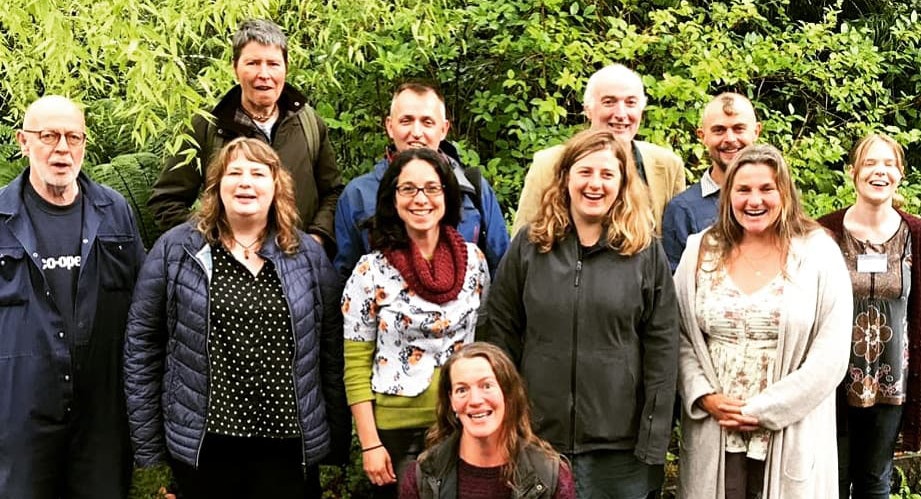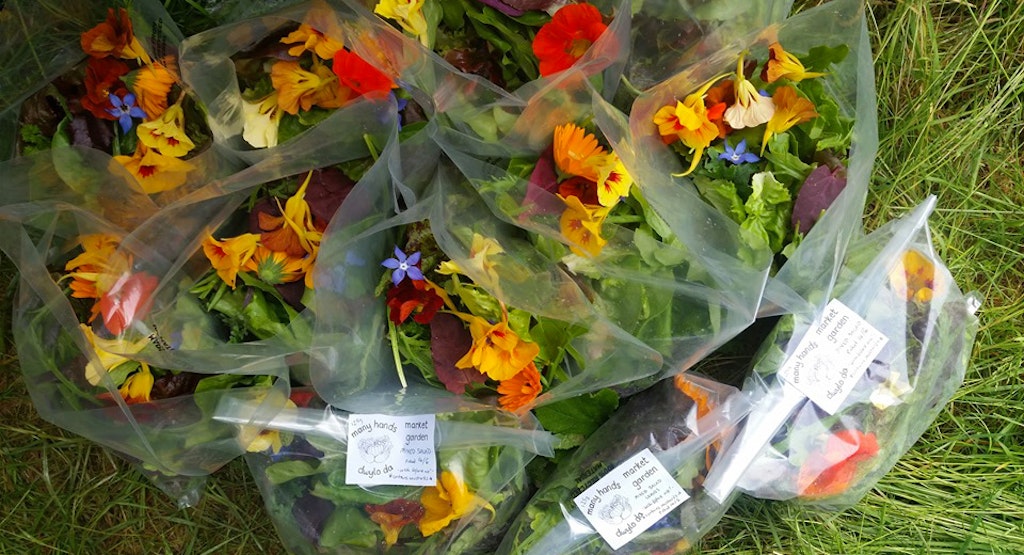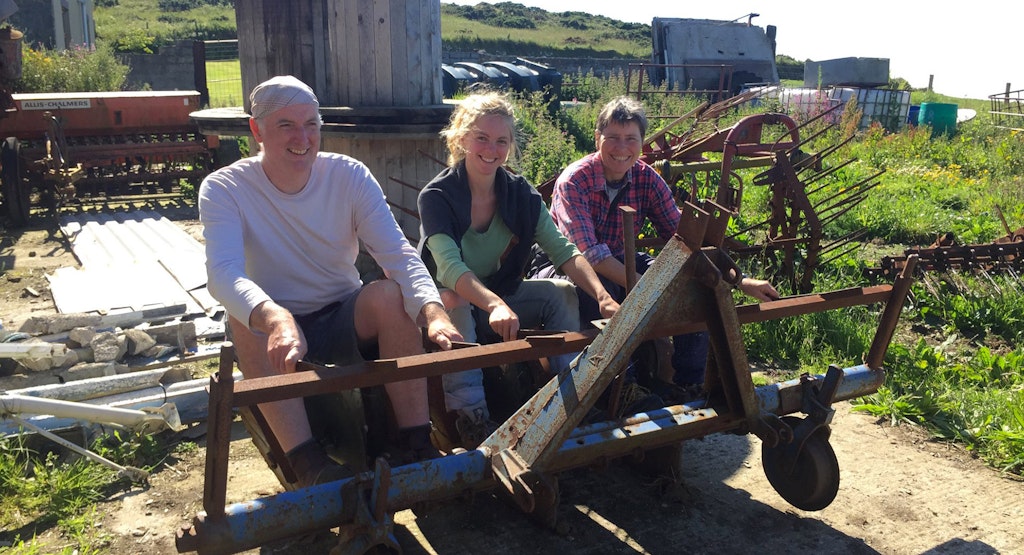
An update on the Pathways to Farming pilot project
by Katie Hastings
We have reached the end of our first year training new commercial food producers to grow and sell food into our local food economy.
It’s been a year of wintery classroom sessions, agonising over crop plans, manically fixing fences, stressful spring feelings, the joy of summer harvests, grappling with packaging and delivery to actually get these crops into local mouths. All of this has been undertaken by our part time trainees while they wade through the thick mud that is the first year producing food to sell against a myriad of barriers such as low food prices, lack of access to land and lack of support for new farmers.
When we designed the Pathways to Farming project, we felt like we were shooting for the stars. We wanted to train people to not just grow for themselves but to grow for their wider community. We wanted to increase the local food being sold into the local economy, and the only way to really do that was to get more local food in the shops and on the menus of local businesses. But underneath it all, we always wondered if we were putting far too much hope on the shoulders of trainees new to food production. How would they navigate soil health, pests and weather fluctuations while also trying to balance the need to grow what is profitable, in demand and sellable?
Then there was the familiar elephant in our room – despite producing nutritious crops in efficient ways, would these new farmers ever be able to actually earn a living from their crops in a food economy that pays them so little for what is so labour intensive?
On Monday 9th September we sat around a table at the Centre for Alternative Technology (our supporters in this project) to assess how much of their ambitious business plans our 12 fledging farmers had managed to achieve this year. Reflecting back on our first lessons together a year ago, we remembered the dreams set out by the trainees for selling fruit juice, foraged goods, pizza ingredients, children’s dips, gourmet salads, fresh herbs and veg boxes. With support from our tutor Emma Maxwell, these plans had been nurtured through financial forecasts, germination and year around graft. Our trainees had really jumped head first into making their new local food businesses a reality.
Hearing the results was amazing. Out of 12 trainees, 9 had managed to bring food from seed all the way to local sale. The 3 that didn’t sell products succeeded in producing food and making steps towards selling in the future. This far exceeded my expectations and blew me away with what can be achieved with hard work and a commitment to producing food.

One year in
Jane Baker of Rye and Roses Bakery undertook our training to be able to produce ingredients for her business pop up events. Over this season Jane has managed to grow Mediterranean ingredients including aubergines, tomatoes, and peppers in our Welsh climate and has sold them at several pizza events over the year to her enthusiastic customers.
Gareth Fysh Foskett planned to develop healthy dips for children made from his locally grown root veg, and he has done just that! Now being sold in the CAT café and soon in another local shop, the Calon Dyfi dips are proving tasty to local children in need of a quick snack grown only minutes away.
Kait Lenoard has been foraging local ingredients and selling them on the market as added value products. Her pestos and blueberries have been flying off the stall, with plans afoot for more RealRoots delicacies to come.
Sadie Maund has taken her previous knowledge of salad production to another level to supply high quality gourmet salads to several local shops. The Many Hands Market Garden salads include edible flowers and colourful herbs and are grown without chemical input.

Four of our trainees in Newtown joined together to form the Veg2Table Veg Box Scheme and succeeded in bringing their precision crop plans to reality, supplying an astounding 20 houses per week with an array of fresh vegetables from their four different growing sites. Liz, Maryline, Maxwell and Michelle managed the feat of working cooperatively to harvest a consistent supply of vegetables and get them out to local drop off points for their customers to take back to their kitchens.
Of our remaining trainees: Tammi Dallaston delivered fresh herbs to festival kitchens across the summer. John Williamson scaled up his family food production while refining his plans to take on a land based business in the future. Sarah Everitt produced tasty radishes destined for local pickles. Julie Ashton negotiated the use of part of her family farm for vegetable production.
To those who have not grown food before, these steps might seem small. They are not. They are mammoth. Each crop sold only exists because of hours of work. Our trainees are laying the foundations for a more resilient food system for us all.

The coming year
Moving into year two of our training programme we will continue to support these trainees as they move onto bigger pieces of land and scale up. In these times of low food prices and potential food scarcity, these new farmers need your support more than ever. Buy their produce, and for a fair price. Thank them for being here, and maybe even offer to help them on their land. We need them if we want good food in our future.
We are beyond excited to welcome a new intake of 12 more trainees this autumn. We have high hopes to put on their shoulders too. They are already poised to jump into the same difficult food system we are all struggling in, with the optimism of being able to feed people good food and earn a living. We are hopeful that things are changing, that local food is becoming more appreciated and valued. While we designed our project on the idea that demand for local food was lacking, we have found the opposite to be true with overwhelming demand for local produce from businesses in the Dyfi Valley. We want to meet this demand with new crops and new food businesses, and our trainees are already working to deliver on this.
Interested in learning more?
Click here for more info on Pathways to Farming and Mach Maethlon or get in touch by emailing katie@machmaethlon.org
Pathways to Farming is funded by Arwain Rural Development Fund, part of the European Social Fund.
Related news


Learning By Doing
23rd October 2024
Empowering councils to take climate action
27th September 2024
